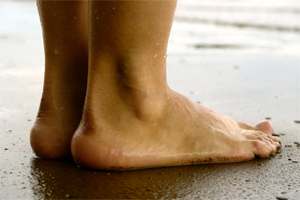4 Causes of Heel Pain and How a Bethlehem, PA Chiropractor Can Help
 If you have chronic pain in your heel, you are likely to suffer from Achilles tendonitis or inflammation of the Achilles tendon. It can be a very painful, uncomfortable condition that makes it hard to function in everyday life—let alone allowing you to stay active.
If you have chronic pain in your heel, you are likely to suffer from Achilles tendonitis or inflammation of the Achilles tendon. It can be a very painful, uncomfortable condition that makes it hard to function in everyday life—let alone allowing you to stay active.
There are some common causes of this condition; luckily, many of them can be avoided so that you can become and remain pain-free much quicker.
Check out these four common causes for Achilles tendonitis and see if your cure just requires one of these quick lifestyle changes.
What is the Achilles tendon?
The Achilles is the largest tendon in your body and it is prone to injury more than any other tendon. This is because it is also one of the most used tendons. It has to manage a great deal of force from your own weight and many of your daily body motions.
If you have tendonitis of your Achilles, it usually starts with a twinge or stiff feeling in the area — the back area of your calf where it connects to the heel. You might notice more pain in the morning or when you walk after prolonged sitting. Even though the pain subsides after using the tendon for a little bit, it is only because you have stretched it — it doesn’t mean it is healed.
If you ignore the signs of tendonitis, it can become worse and start exhibiting burning, sharp pains or shooting pains up and down the leg. Once this occurs, you might find it difficult to perform day-to-day tasks and doing the things you love.
The Four Common Causes of Achilles Tendonitis (heel pain)
- Overuse – When you use the Achilles too much, it can become strained. If that strain doesn’t heal properly, it leads to painful tendonitis.
- Overpronation – This occurs when your foot rolls into the arch of the foot — making your Achilles stretch more than it normally does. This is very common in people with flat feet. If you wear high heels a lot during the day, it can actually shorten your Achilles tendon, so when you wear flat shoes or running shoes you will overstretch your Achilles.
- Short Calf Muscles – Even if you don’t wear heels, short calf muscles can cause your Achilles to tighten and when stretched, small tears form, which reduces your flexibility and increases your risk for tendonitis.
- Inadequate Footwear – Sometimes Achilles tendonitis is caused by wearing the wrong type of footwear. When you do, you can cause supination, which is when the foot rolls out instead of in.
If you are overweight or suffer from chronic conditions such as diabetes, arthritis or gout you might also have Achilles tendonitis without any additional reason.
How our Chiropractic Care helps (in Bethlehem, PA)
When Achilles tendonitis does occur, you can quickly become overwhelmed. Your life is limited, your mobility is non-existent and you’re in pain when you try to go about your normal day to day activities.
Luckily, there is relief. We always assess your tendonitis issue and not only create a proven plan to treat it, but we locate the cause of your specific pain.
We don’t just prescribe medications and send you on your way. Instead, we take a holistic approach and get to the root of the problem — rather than covering it up which could result in your body sustaining an injury indefinitely.
Meet with Dr. Nicole Muschett today for a foot, ankle and knee pain consultation and see how she can help you treat and relieve your Achilles tendonitis for good.